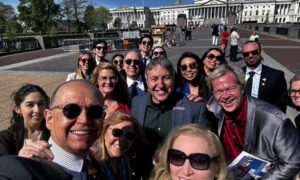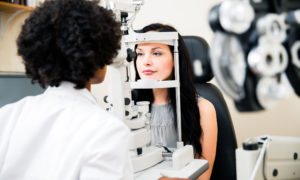March 16, 2022

Warby Parker announced a new partnership with Eastman to pioneer a demo lens molecular recycling program.
One of the greatest environmental impacts within the eyewear industry is the lack of a recycling solution for demo lenses—the clear plastic lenses used across the industry to maintain frame shape and integrity while in transit, on display, and for try-on, Warby Parker pointed out in a news release.
With the 600 million frames produced annually industry-wide1, this practice accounts for over 5,000 tonnes of waste per year globally. For years, Warby Parker has researched alternative materials for discarding the plastic alongside downstream solutions, all of which have fallen short due to quality and this type of plastic being difficult to break down.
Since the summer of 2021, discarded demo lenses from Warby Parker’s optical labs, located in Sloatsburg, N.Y., and Las Vegas, have been sent to Eastman’s facility in Kingsport, Tenn., where carbon renewal technology is used to break the lenses down to their molecular level. Once broken down, the molecules are reused as the building blocks to create Eastman Acetate Renew—an acetate exclusively supplied by Eastman that is 60 percent bio-based2 and 40 percent certified recycled content. According to Eastman, its Acetate Renew is chemically and physically identical to traditional acetate; it offers a sustainable solution with no compromise to aesthetics, durability or performance. The brand plans to begin incorporating Acetate Renew into some of its frames later this year.
Other Articles to Explore
As the only eyewear brand to recycle its demo lenses with Eastman while sourcing Acetate Renew for new eyewear, Warby Parker says it is making progress toward a circular solution and lowering the environmental impact of producing its frames.
“From day one, Warby Parker has set out to find innovative solutions to everyday problems—and along the way, we’ve taken a stakeholder-centric approach. We’re committed to evaluating how our operations impact our employees, customers and the environment, and our partnership with Eastman exemplifies this commitment,” said Neil Blumenthal, co-founder and co-CEO of Warby Parker. “We hope that others in the eyewear industry will join us as we work towards solutions to lessen our impact on the planet and its people.”
“Warby Parker’s commitment to reduce the impact of their products on the environment has been evident throughout this project. Eastman appreciates their commitment to take action and change the status quo,” said Scott Ballard, Eastman’s vice president and general manager of specialty plastics. “The demo lens to Acetate Renew breakthrough is the first of what we expect to be many examples of Eastman customers leveraging our molecular recycling technologies to divert material from landfills and lower carbon emissions.”
To learn more about Warby Parker’s efforts to be environmentally friendly, visit warbyparker.com/impact-report.
References
1 Source: 2019 Statista Eyewear Report
2 Recycled content achieved through allocation of ISCC-certified recycled plastic using a mass balance method.

























